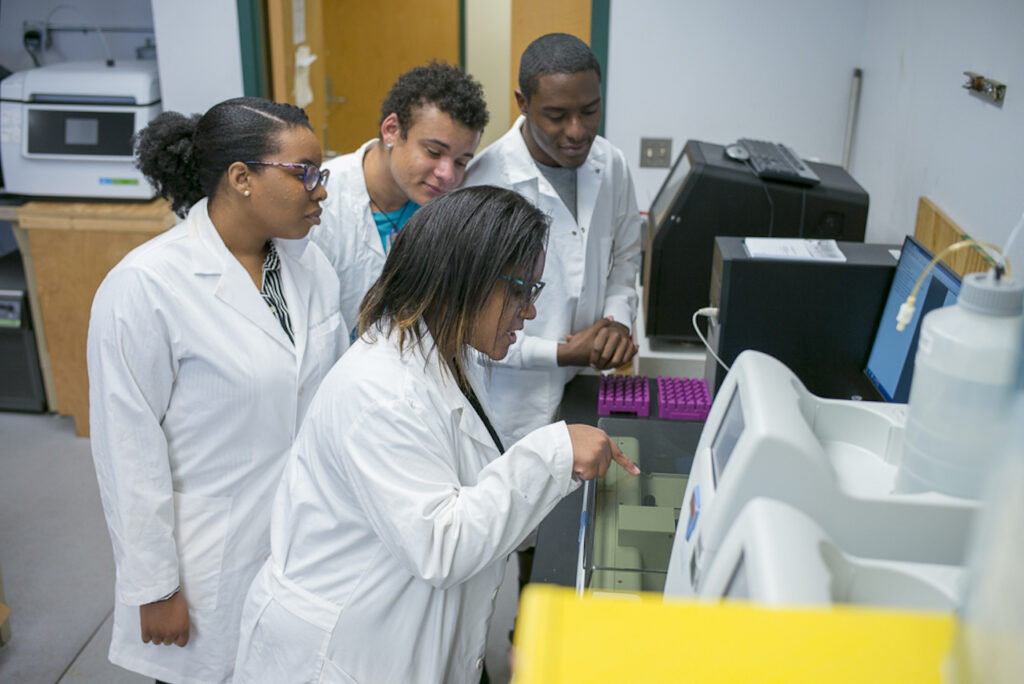Florida A&M University (FAMU) is the recipient of a $30 million, five-year federal grant from the National Oceanic Atmospheric Administration (NOAA) to support the Center for Coastal and Marine Ecosystems (CCME) and its mission to find and train the next generation of scientists from under-represented groups.
FAMU is the lead institution and President Larry Robinson, Ph.D., director of the CCME, is the principal investigator of the project.
The NOAA CCME is a NOAA Educational Partnership Program/Minority Serving Institution (EPP/MSI) cooperative science center (CSC) and includes partner minority-serving institutions Bethune-Cookman University (B-CU), California State University Monterey Bay (CSUMB), Jackson State University (JSU), Texas A&M University-Corpus Christi (TAMUCC), and the University of Texas Rio Grande Valley (UTRGV).
FAMU School of the Environment students at work.
Credit: FAMU School of the Environment
The NOAA CCME’s mission is to recruit, educate, and train a new generation of scientists, particularly from underrepresented minority communities, in NOAA-relevant STEM disciplines and social sciences. This new funding agreement extends and modifies the goals and objectives of the initial five-year award that started in 2016.
Robinson said he is looking forward to building on the past five years of training and mentoring future scientists who will be equipped to tackle climate change and other pressing issues facing coastal communities.
“The education, research and outreach done by the Center for Coastal and Marine Ecosystems will help NOAA and coastal communities address current and future challenges,” Robinson said. “Having underrepresented minorities who are experts not only enhances diversity but also ensures that we stay attuned to the needs of our most vulnerable populations as solutions are developed.”
CCME has adopted three thematic areas – Place-Based Conservation, Coastal Resilience, and Coastal Intelligence in alignment with current NOAA priorities. These priority areas include un-crewed systems; artificial intelligence; cloud computing; “omics”- a field of study in biological sciences that ends with -omics, such as genomics, transcriptomics, proteomics, or metabolomics; data, and citizen science with particular attention to cross-cutting research on climate change and environmental justice.
FAMU Vice President for Research Charles Weatherford, Ph.D., said it’s difficult to overstate the importance of this NOAA grant.
“This is FAMU’s largest grant. The Center is a consortium of Minority Serving Institutions and was formed to address issues confronting marine and coastal communities and to help supply a modern talented workforce in relevant NOAA areas of interest,” said Weatherford, “This NOAA grant is representative of the research that is carried out at FAMU and is a showcase for partnerships that address today’s nationally and internationally relevant issues.”


